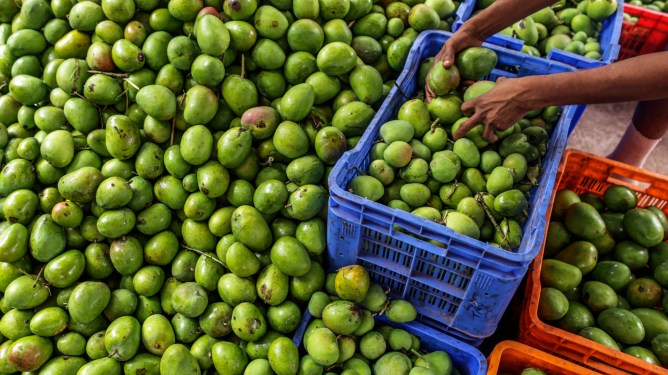India’s urban population is rapidly shifting towards quick commerce platforms, but its rural side, home to over 800 million people, still relies heavily on offline businesses for daily consumption. Wheelocity aims to transform this untapped market by making e-commerce accessible to people living beyond the top 200 cities of the country.
The Founder’s Vision
Wheelocity was founded in September 2021 by Selvam VMS, who has a clear vision of creating a platform that solves e-commerce access for people living in semi-urban and rural areas, commonly referred to as ‘Bharat.’ The startup has pivoted from its earlier B2B supply chain business for quick commerce platforms to building a platform that addresses the unique needs of these regions.
A Unique Approach
Unlike traditional e-commerce platforms that sell products online, Wheelocity has taken a ‘phygital’ approach. This includes electric three-wheelers that enable the startup to take its products into villages physically daily, helping gain the trust of consumers. These vehicles allow consumers to place orders using Wheelocity’s app and receive deliveries on their doorstep.
The Challenge of Access
VMS notes that other e-commerce platforms use a week or more to deliver products in the same region, making it challenging to deliver fresh consumable items and groceries. Wheelocity uses its existing supply chain, built for the earlier B2B business, to offer customers freshly produced goods and groceries faster.
The Opportunity
VMS sees the shift towards e-commerce in rural India as a $1 trillion-plus opportunity. The startup has already established an operations office in Tamil Nadu’s tier-II city of Trichy to understand consumers’ buying behavior better and gather feedback. Next, it plans to scale the business to 20,000 towns and villages and expand it to all five southern states of India within the next 12 months, taking its platform to 10 million consumers.
Funding and Future Plans
Lightspeed, Wheelocity’s existing investor, has backed the latest move by leading its Series A2 round of $15 million. The VC fund had previously led the startup’s $12 million Series A round in July 2022. Alteria Capital, Anicut Capital, and VMS also participated in Wheelocity’s fresh round.
Market Trends
Moving focus to smaller towns and villages in India has been an emerging trend in the VC market. Consumers in these areas often have disposable income and intent to buy. Earlier this year, Accel started looking at the region to hunt for future unicorns.
Conclusion
Wheelocity is poised to revolutionize e-commerce in rural India by making it accessible and convenient for people living beyond the top 200 cities of the country. With its unique approach and existing supply chain, the startup is well-positioned to tap into the vast market potential of rural India.
Key Statistics:
- Over 800 million people in rural India rely on offline businesses for daily consumption.
- Wheelocity aims to make e-commerce accessible to people living beyond the top 200 cities of the country.
- The startup has pivoted from its earlier B2B supply chain business to building a platform that addresses the unique needs of semi-urban and rural areas.
- Wheelocity uses electric three-wheelers to take products into villages physically daily, helping gain consumer trust.
Market Opportunity:
- Wheelocity sees the shift towards e-commerce in rural India as a $1 trillion-plus opportunity.
- The startup plans to scale its business to 20,000 towns and villages and expand it to all five southern states of India within the next 12 months.



